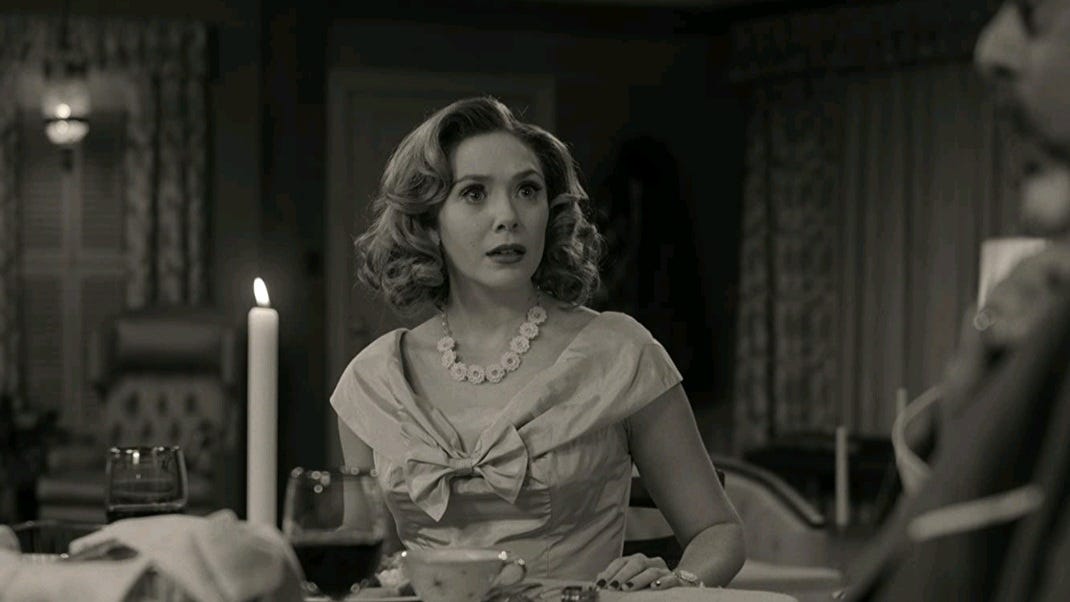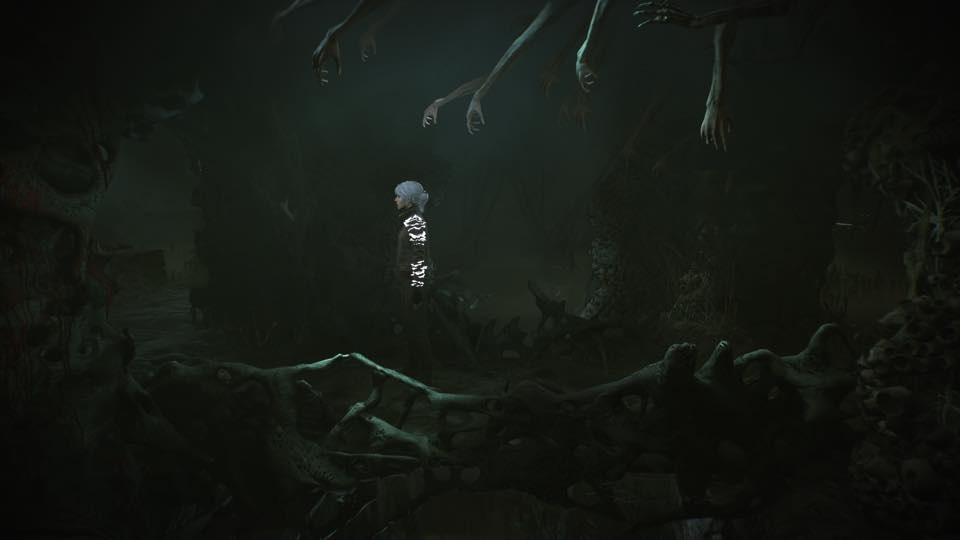There are a hundred thousand species of love, separately invented, each more ingenious than the last, and every one of them keeps making things.
Richard Powers, The Overstory
As a graduate student working in video games, I found myself constantly confronted with questions about responsibility. As in, am I being a responsible critic if I say something about a game if I have not played the thing to completion? What counts as completion? Finishing a campaign? Getting 100% of the achievements? Romancing every available character? And to what extent is second-hand consumption sufficient - can I substitute a Let's Play for the real thing if all I want to do is make an argument about the game's approach to representing gender in specific moment?
I'm running into the same question here on The Crossover Appeal. Good criticism walks the line between thoughtful preparation and obvious candor. I've enjoyed reading reviews of movies by people who walked out of the theater just as much as I've enjoyed those by critics who've watched their subject half a dozen times. Sometimes the stuff we take in is good, through and through. Other times, you take what felt useful, felt pleasing, and you leave the rest behind. No use in being loyal to a fault when it comes to the things we read, play, and watch.
And so this week's recommendations have something of a scavenged feel to them. There's an excerpt rather than a whole book. A game half-finished and inflected with duality from the start anyway. A tv show that hasn't even finished its first season and that will almost certainly disappoint in its conclusion.
But scavenging is one of the dilettante's most sacred rites. If the water is sweet at the top and there's gratitude to be had there, it might be worth it, on occasion, to simply refrain from drinking more deeply. And if there are indeed a hundred thousand species of love, when you find one, let it set for a while on the tongue before trying another bite.
A note on content warnings. When I indicate a content warning here “CW:…”, I am indicating potentially troubling, triggering, or objectionable content in the item I’m recommending, not in the recommendation itself. I will explicitly indicate otherwise if my recommendation contains CW-worthy material.
Listen and Watch: Chung Ha, "Bicycle"
Pandemic time affected us all in different, unexpected ways. Between March and December of last year I listened almost exclusively to the shimmering, glossy productions coming out of Seoul and found in those shining K-pop depths some real treasures. One of those was Chung Ha. If you've never heard of Chung Ha, she's the 25 year old dynamo soloist who just released her first full album after a few years of EPs and singles. She's parodically versatile, slipping in and around 70s funk production, EDM, top forty contemporary r&b, and singer-songwriter vibes, sometimes on the same track, all while being one of the industry’s most accomplished dancers.
"Bicycle" is a good track, but it's amplified by the video into some truly iconic spaces. It's a thot anthem for theater kids - early Panic! at the Disco if it had been marinating in Ariana's "Side to Side". And while the whole video is magical, stay for the dance break which Chung Ha literally drops into and levitates out of. Goosebumps every time.
Read: The story of Patricia Westerford in The Overstory
CW: suicide
I spent a long four months this autumn and winter making my way through Richard Powers’ Pulitzer, Man Booker, and William Dean Howells Medal winning book, The Overstory. It’s a complicated book that I have complicated feelings about. It’s the kind of book I would have described as life-changing when I was a college senior, but now would describe as a “mixed bag” and “maybe not worth it.”
What I would describe as entirely worth it, however, is the short story toward the conclusion of the book’s first third about one if its central characters, Patricia Westerford. It is, in a dense twenty or so pages, everything I love about character-driven American short story writing. Every word feels placed, curated like the living room of one of the better HGTV home reno shows. The slices of Patricia’s life that Powers shows us are as beautiful and fragile as stained glass. As she grows into her deep affection and keen scientific eye for the trees she studies, and then falls victim to a brutal, patriarchal academic superstructure before finding peace and recognition in the merits of her subject, Patricia proves to be a courageous burst of warm inspiration. Just, don’t read the rest of the book if you’d like to hang onto that optimism.
Watch: Wandavision
I’m bad at tv. I hate the time vortex of binge watching and I feel like the episodic structure of television lends itself towards sadistic, cliff-hanger focused writing which I find distasteful. This is on me. Think of it as a personal failing. This week, however I watched five episodes of one show across two days, which is like a personal record, and is why I’m pushing through my initial hesitation to go ahead and recommend the new Disney+ Marvel show, Wandavision.
Marvel has long had a problem with emotional stakes. The characters in these movies go through the motions of grief, jealousy, and trauma, but none of it (with a few notable exceptions) sticks because ultimately they’re popcorn spectacles with transmedia aspirations. Wandavision still has plenty of spectacle - replacing explosive set pieces with surprise twists and artful, inventive set design - but it’s in service of something that feels a lot more humane than usual. In Wanda, there’s a deep and aching malaise that, thanks to Olsen’s capable performance, anchors the show in a way Tony Stark has never been able to. It also feels like a bit of meta commentary on the whole MCU experiment - the weakest parts of the show are when it zooms out for the Marvel-y stuff. Wanda’s struggles as a character resonate with my struggle with Marvel in general. Just leave me alone and let me feel something before you wink at the camera again.
Watch: Colonialism - The Board Game Struggle by No Pun Included
CW: colonialism, racism, murder
Another week, another YouTube video from board game folks. This time, it’s a heartfelt exploration of colonialism as a persistent factor in the modern hobby board game world. Efka weaves together his Lithuanian identity with European colonial history and the contemporary political discourses around games to produce a thoughtful, accessible primer on colonialism’s mark on popular culture. There’s unfortunately little discussion about the racialized violence that is, of course, an essential aspect of the discussion, but Efka also seems aware of this and has chosen instead in this video to own his specific family’s relationship to colonial power (partitioned, re-partitioned, oppressed, invaded, etc., etc.) as a way to suggest the both the pervasiveness and the personal dimensions of the subject. This video does a lot more than say “thing bad” in its analysis of colonial representation in board games - it’s an initial toolkit for thinking more carefully and critically about the settings and simulations we prioritize in our play spaces. Informative, sincere, and smart - don’t miss this video.
Play: The Medium
CW: trauma, abuse
I am just about halfway through this game, so my experiences here are incomplete, but for a game that has incomplete information at its heart, that seems appropriate. Games that appear early in a new console’s life cycle, as The Medium does for the new Xbox Series X/S, often include some new feature that shows off what the hardware is capable of, and in this case it’s a split world that players navigate simultaneously, the material and the spiritual. And while, sure, it feels a little gimmicky, there’s a pleasing kind of tension that comes from having to split your attention across two different environments while the horrors of Poland’s violent history with Germany and the U.S.S.R. take hideous form in the hallways of Niwa. Made by a small development studio with a modest budget, the constrained scope of the game works in its favor, drawing inspiration from the first generation of survival horror games to hem players in under an oppressive atmosphere. The focus and craft on display here is special, but what has really hooked me in is the delicate way it plays with and then subverts worn storytelling tropes around trauma. Player-character Marianne is fundamentally compassionate, full of empathy for the ghostly world that haunts her which animates otherwise tired generic features with purpose. And while the subject matter here is heavy indeed, Marianne’s moral compass is the cool refreshing spring that keeps things moving.
Listen: No Place by Danielle Durack
Singer/songwriter records are tricky things. The best of them tell stories you can't peel your ears away from, and yet, they can still sink effortlessly into the sounds of coffee shops and typing keyboards. Danielle Durack's new record, No Place, walks that delicate balance between earnest, personal heartbreak and quiet craftsmanship. It's lonely and warm at the same time with tracks like "There Goes My Heart" that will have you reaching for that guitar you haven't touched since sophomore year. Then there's "Billy" which calls to mind the small town storytelling of Sun Kil Moon or Manchester Orchestra while Durack's ever-so-slightly twang rides along a comforting, reliable song structure. And it is Durack's voice that's the star here, and though at first it may register as a little too anonymous, a little too unremarkable technically speaking, by the end of the record you discover she has a remarkable capacity to expand and contract the space with her voice alone. With a raspy tone and a slightly nasal delivery, Durack's voice is always on the precipice of a fireside friend and the most beautiful thing you've ever heard.
February’s almost done. Be well folks. And thanks for reading.







Exquisitely written as always, Jordan! Also LOL at "I find distasteful." Sounds like something I'd say.